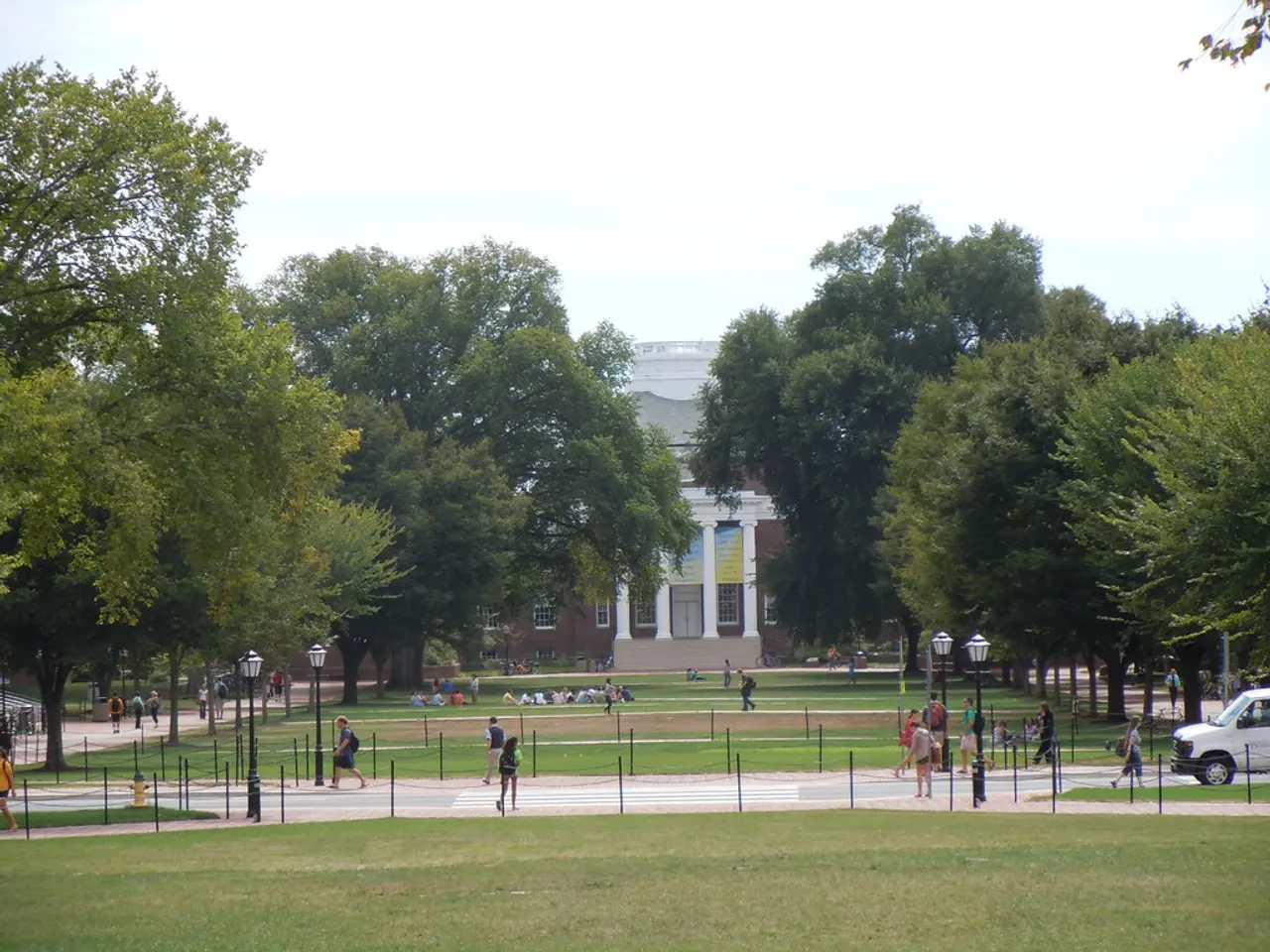surging temperatures negatively impacting student academic performance worldwide
Heat Exposure and Climate Change Impact Students' Cognitive Abilities and Academic Performance
A new study published in PLOS Climate has revealed that prolonged exposure to heat significantly impairs students' cognitive abilities, affecting their academic performance, especially in complex subjects such as mathematics.
The study, co-authored by Konstantina Vasilakopoulou, a professor at the Royal Melbourne Institute of Technology, analysed previous research encompassing nearly 14.5 million students across 61 countries. The findings show clear evidence that heat exposure over time is correlated to lower scores in math and other complex cognitive tasks among elementary, middle, and high school students.
Even on days when temperatures were between 80 and 90 degrees Fahrenheit, the data show that students can experience heat stress, followed by a drop in cognitive performance. This impact accumulates over time, leading to persistent deficits in cognitive performance and learning outcomes.
Students from lower-income families often have less access to air-conditioned classrooms and homes, making them more vulnerable to the harmful effects of heat. Racial disparities were also evident in the data, with Black and Latino students in the U.S. seeing up to three times greater cognitive losses due to heat compared to their white peers.
The effects of extreme heat on the health and well-being of young kids are a major concern for parents amid high temperatures and wildfires. In L.A., public school starts in August, exposing students to heat while at school, and ultimately affecting those attending under-resourced campuses more.
The community-driven "cool communities initiative" in the Pacoima neighborhood of L.A. has proven to be successful in improving neighborhood temperature comfort. However, many schools, particularly those in underserved areas, lack the resources to implement adaptive strategies such as improved ventilation, air conditioning, and green infrastructure effectively.
Adaptive strategies to mitigate these effects, especially in underserved schools and communities, include increasing access to climate control in schools and homes, implementing heat-resilient school infrastructure, scheduling adjustments, acclimatization programs, policy and funding targeted at low-income and minority populations, and using technology-enabled learning. These combined mitigation approaches can help reduce cognitive impairment due to heat, close racial and socioeconomic achievement gaps, and sustain academic performance amidst escalating climate challenges.
Dr. Marc Futernick, a Climate Resolve board member, emphasized that the potential cognitive performance drop due to climate change poses a significant threat to humanity's future. He highlighted the urgent need for policymakers and education leaders to prioritize protecting students from rising temperatures to prevent educational disparities intensified by heat exposure.
The study underscores the importance of a collaborative effort between people in the built environment to address extreme heat issues in both residential areas and schools. Climate change could potentially hinder entire generations' abilities to learn and succeed due to educational disparities intensified by heat exposure. Future climate scenarios predict that students in currently cooler regions may start to suffer the same problems that those in warmer climates do now if current warming trends continue without adequate adaptation measures.
- The government should prioritize infrastructure that addresses extreme heat in schools and residential areas to protect students' cognitive abilities and academic performance.
- Technology-enabled learning can help mitigate the effects of heat exposure on students, especially in underserved schools and communities.
- The findings of the study suggest that environmental science and education should play a critical role in addressing climate change and its impact on students' cognitive abilities.
- This study highlights the need for education and self-development programs to focus on career development, policy and legislation related to climate change and heat-resilient infrastructure.
- Los Angeles, California, faces a unique challenge due to the early start of school and the risk of wildfires, compounding the impact of heat on students' cognitive abilities.
- Hollywood's culture of innovation and technology can be leveraged to develop new solutions for addressing climate change and improving the learning environment for students.
- The environmental-science community must collaborate with policymakers, educators, and community leaders to address climate change and its impact on students' cognitive abilities.
- The climate change-driven drop in cognitive performance among students can create long-term, persistent deficits in cognitive performance and learning outcomes.
- Climate change poses a threat not just to students' health, but also to their future career opportunities, necessitating immediate action in policy and legislative measures.
- Addressing climate change requires general news coverage and public awareness to create an informed opinion and drive action.
- Job-search platforms can incorporate courses on environmental science and climate change to help prepare students for careers in fields related to these issues.
- UCLA, as a leading research institution, can play a significant role in developing new skills training and research programs related to climate change and its impact on students.
- The study sheds light on the connection between heat exposure, climate change, and the educational achievement gaps along racial and socioeconomic lines.
- Ongoing learning and continuous skills training are essential for adapting to the challenges posed by climate change and ensuring students' long-term success in a changing world.




